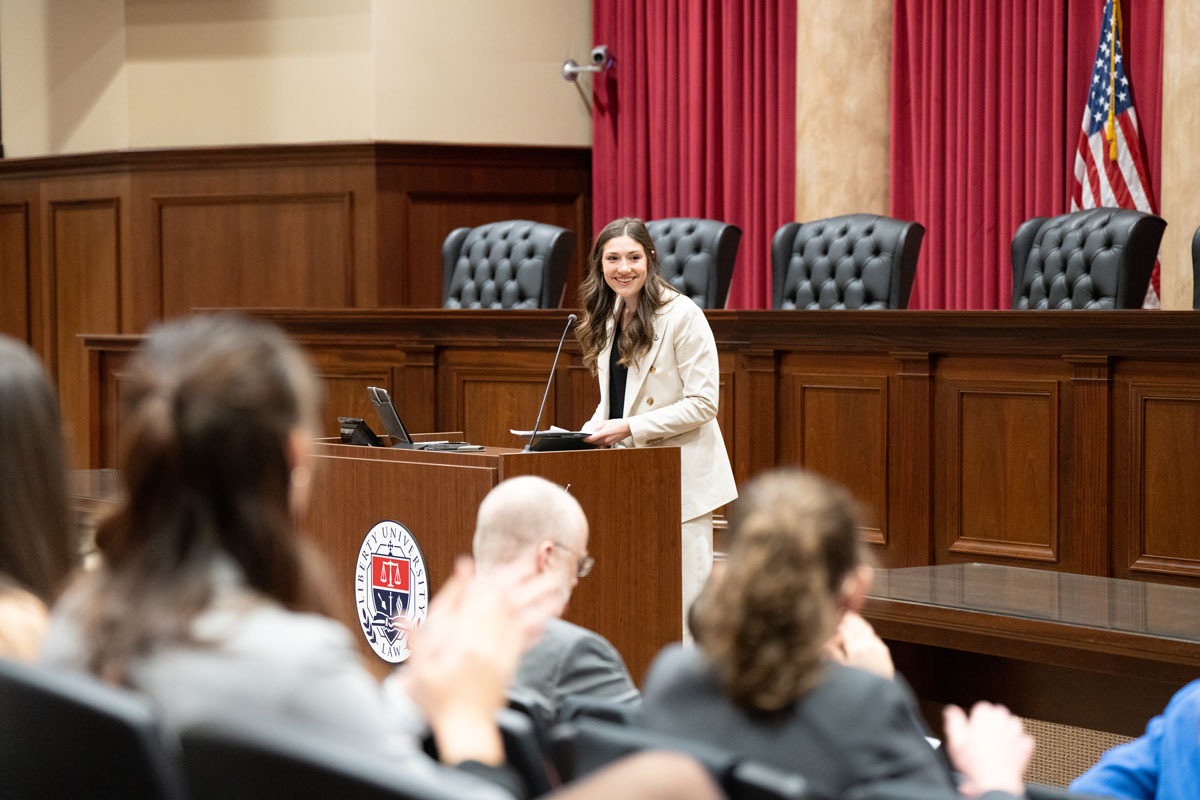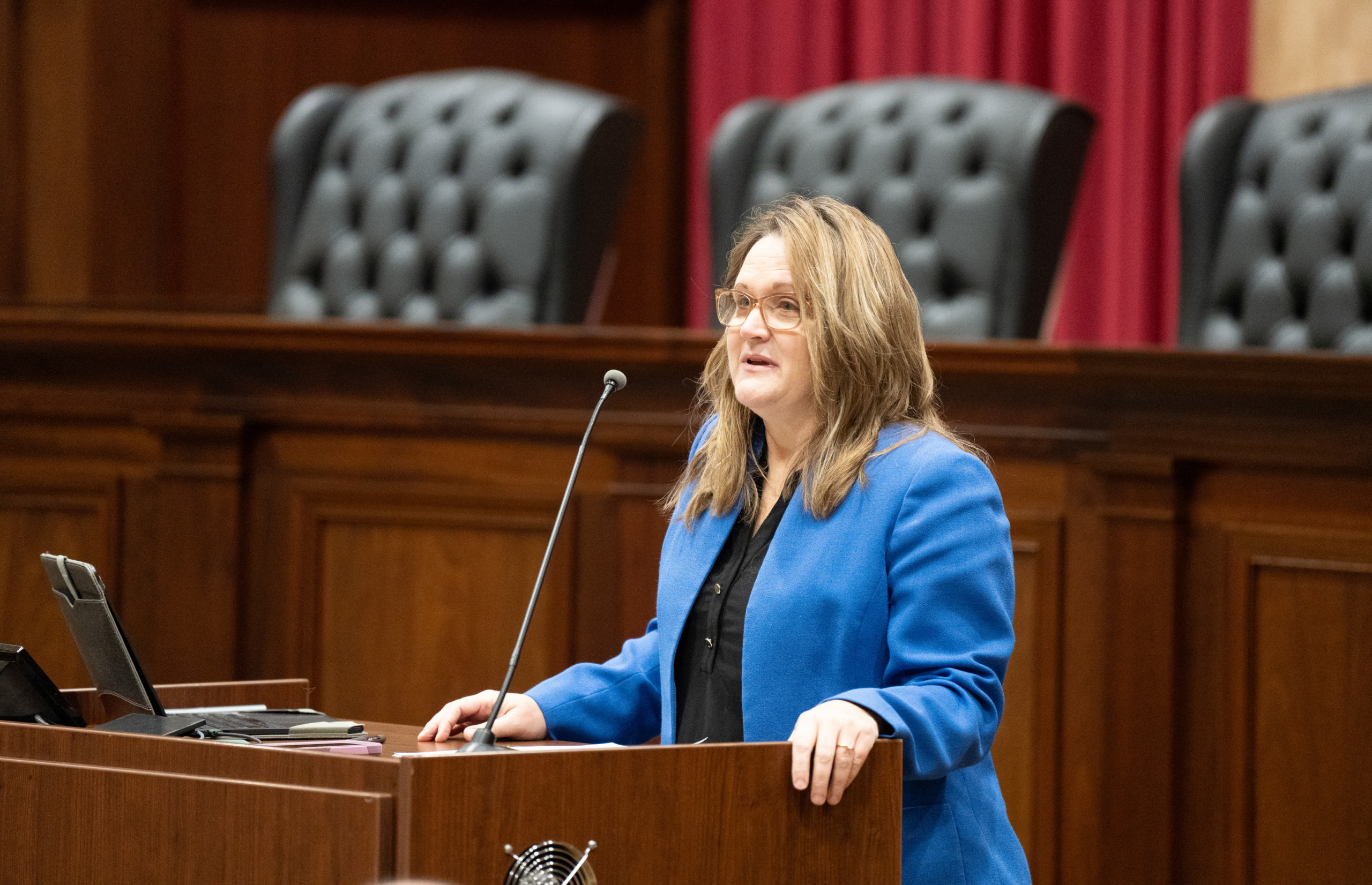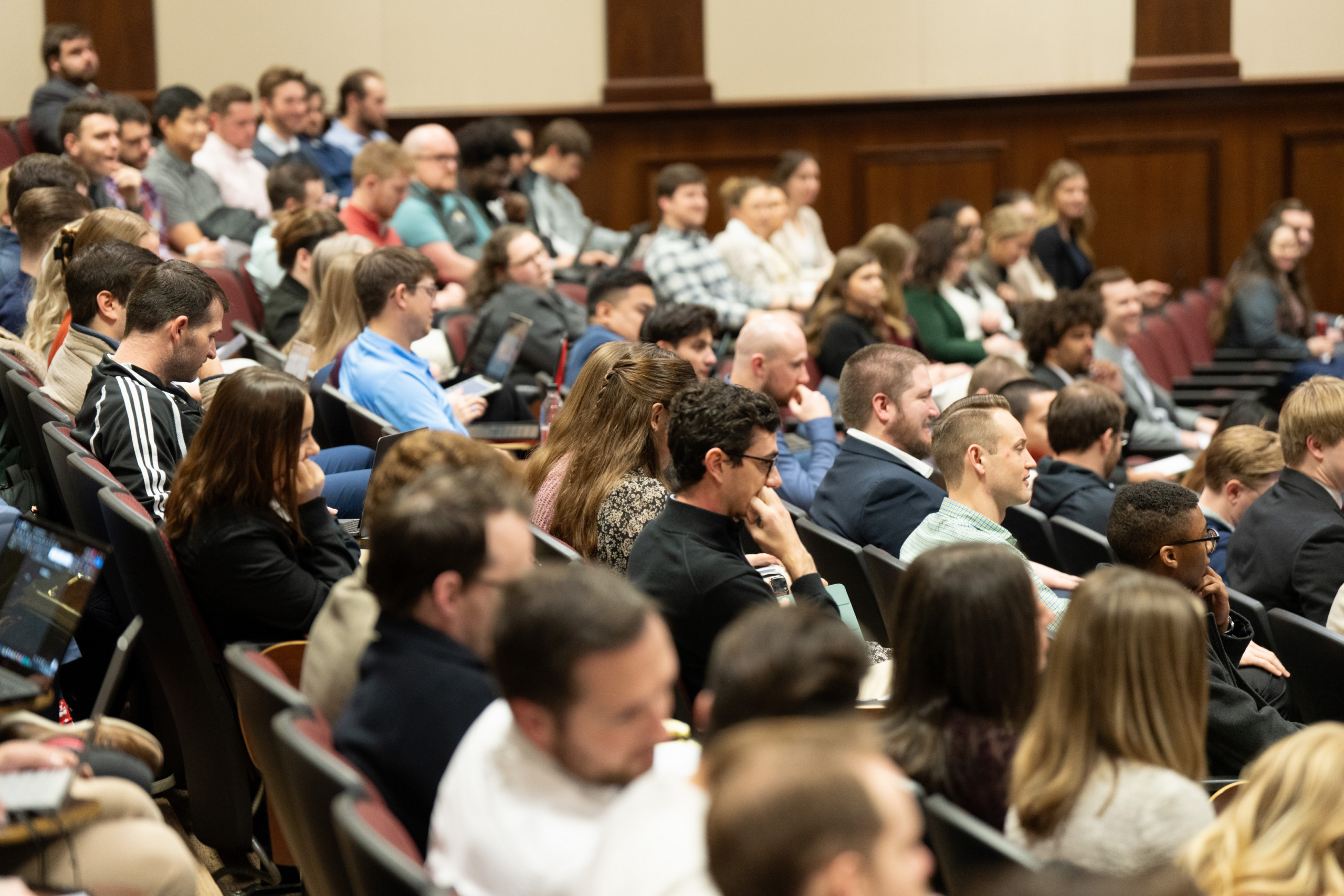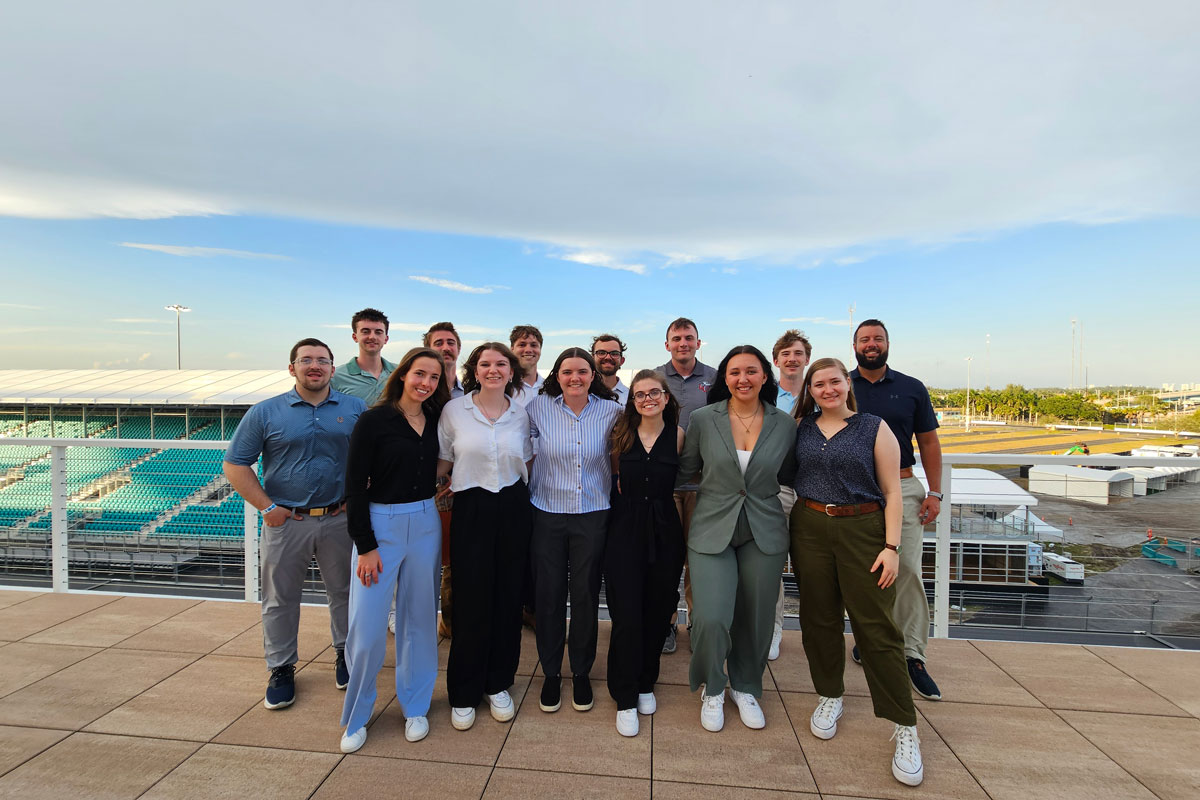Search News Archives
Filter News Articles
Additional Navigation
Liberty Law Review hosts symposium on educational freedom for families
March 5, 2024 : By Bryson Gordon - Office of Communications & Public Engagement
Law scholars and students alike filled Liberty University School of Law’s Supreme Courtroom on March 1, as the Liberty University Law Review hosted its annual symposium, welcoming legal scholars to campus to discuss important issues facing Christians today.

This year’s symposium focused on the crisis of education in America, as classrooms become the frontlines in the growing battle between government control and parental rights. The keynote speaker was Dr. Michael Farris, former president and CEO of Alliance Defending Freedom and founder of the Home School Legal Defense Association. Farris, recognized in the profession as one of most staunch advocates for educational freedom and homeschooling, has argued in front of the United States Supreme Court, seven U.S. Circuit Court of Appeals, and in 10 state supreme courts.
Each year, the Law Review, an academic legal journal run by 2L and 3L students, hosts the symposium featuring experts on the pressing issues of law or society that are impacting Christianity and religious liberties today. The Law Review’s editorial board begins planning the symposium nearly a year before each event.
This year’s event was kicked off by two Liberty Law professors, Rena Lindevaldsen and Jeffrey Tuomala, who laid the foundation of the main problem facing the American educational system today: educational freedom.
Lindevaldsen opened up the morning session, citing Deuteronomy 6, about the responsibility of parents to raise up their children.
“It commands parents to impress the commandments on their children, to talk about them when you sit at home, when you walk along the road, when you lie down and when you get up,” Lindevaldsen said. “We have a responsibility at all times to be instilling the only truth that exists to our children.”
She called the fight over educational freedom “ground zero,” pointing out that those who are against homeschooling options typically take aim at the Bible as their basis for homeschooling being “unschooling.”

“Everyone knows the goal of education is to instill values. The question is: What set of values?” Lindevaldsen asked.
Tuomala followed up Lindevaldsen, arguing that all forms of tax-funded education are unconstitutional. He also pointed out that arguably the biggest issue within public education is the lack of a moral compass, something that diminished in schools when God and prayer were taken out.
“Education has to have a moral component,” Tuomala said. “Look at Romans 1; we all know God, but when we refuse to acknowledge Him, all morals go downhill. And what happens to the quality of education? It also goes downhill.
“Religion requires the acknowledgement of God. Education requires the acknowledgement of God and the development of morals. Those go together and cannot be separated out,” he added.
Tuomala and Lindevaldsen were followed by various champion advocates of the educational freedom cause, including King Randall, the founder of Life Preparatory School for Boys, a school that provides alternative educational means for students through trade skills, in addition to the normal curriculum; William Estrada, senior counsel at Home School Legal Defense Association, advocating state legislatures to create more opportunities to homeschooling; and David Goodwin, president of the Association of Classical Christian Schools, who has published various magazines, Substacks, and “Discover Classical Christian Education,” a guide to implementing Christian education, which has sold more than 100,000 copies worldwide.
Farris focused his keynote address largely on parents’ responsibility, pointing to places in the Bible where the Lord commands it. “We have a responsibility to raise our children. You need to have authority to make decisions to do that. So therefore, the responsibility should be coextensive with your rights.”
As someone who has argued in front of the key judicial decision makers in America, Farris said as he gets further into his career, he feels the need to “bounce my ideas off a greater number of people,” and the symposium and an article he wrote for the Liberty Law Review gave him an opportunity to do that with part of the next generation of Liberty Law graduates.

“This symposium today, and the Law Review article that is accompanying the symposium, are my efforts to begin the conversation,” Farris said. “I really hope this does change the law in this country relative to parental rights, so I’m honored that Liberty would give me the opportunity to launch what I hope to be a very important new chapter of parental rights in the country.”
After Farris spoke, the symposium wrapped up with an hourlong panel discussion where students were allowed to submit questions to the six scholars.
The Liberty Law Review publishes three issues annually, two that are articles composed by legal scholars and practitioners and notes by law students that cover a broad range of topics; and a third issue devoted to the topics of the annual symposium.
Visit the Liberty Law Review’s website to learn more about the journal, or to watch the livestream from this year’s symposium.


